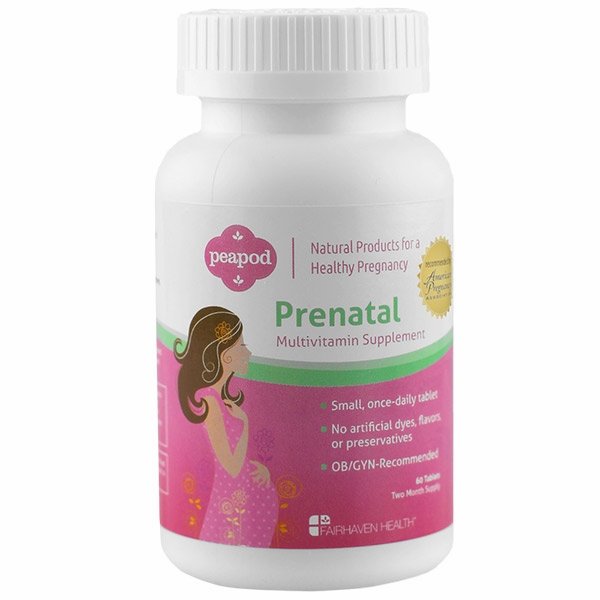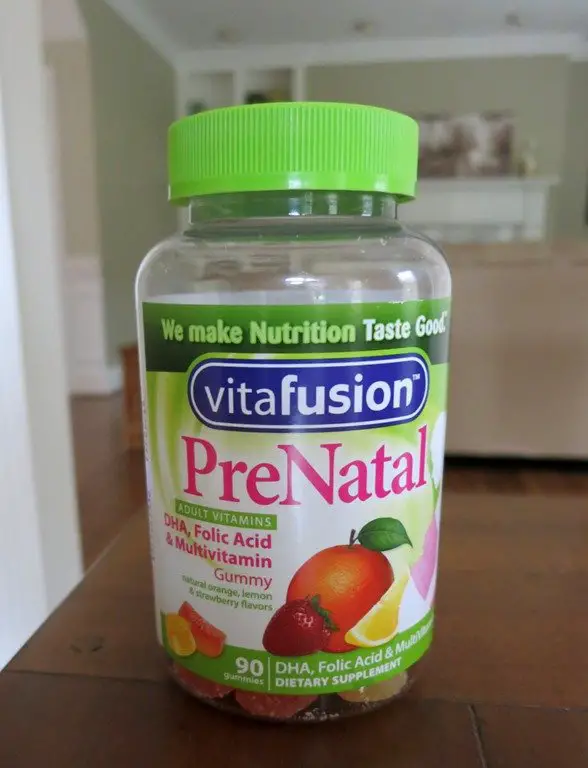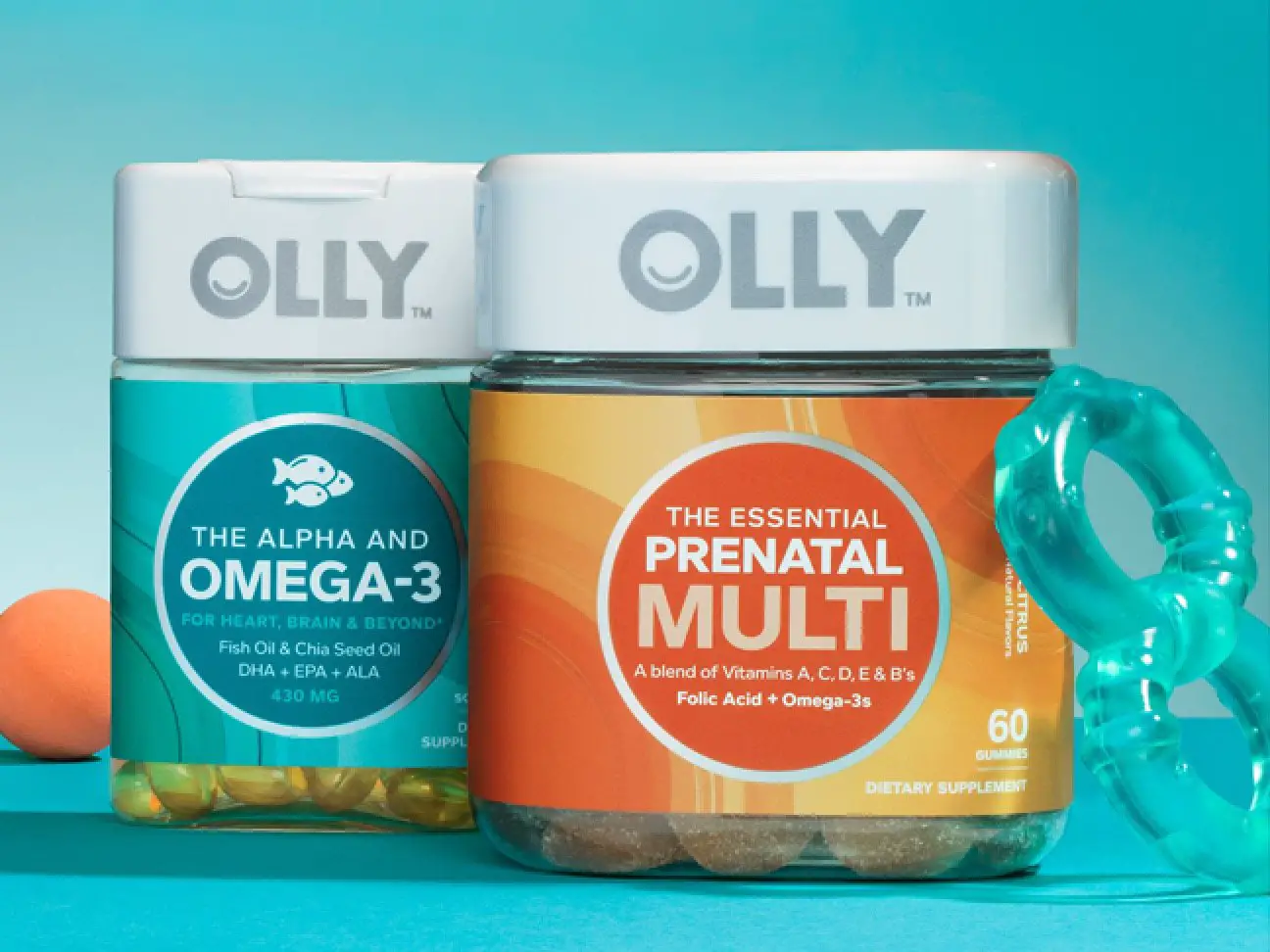Herbal Supplements Can Help With Ailments With Caution
In addition to micronutrients, herbal supplements are popular.
One 2019 study found that 15.4 percent of pregnant women in the United States use herbal supplements. However not all disclose to their physicians theyre taking them.
While some herbal supplements may be safe to take during pregnancy, there are far more that might not be.
Although some herbs can help with common pregnancy ailments like nausea and upset stomach, some may be harmful to both you and baby.
Unfortunately, there isnt much research regarding the use of herbal supplements by pregnant people, and much is unknown about how the supplements can affect you.
The safest bet? Keep your doctor in the know about any and all changes to your eating plan and supplements.
Pregnancy Vitamins And Nutrients
A balanced nutritious diet is the best way to receive the necessary vitamins and nutrients you need for pregnancy, but vitamin supplements can also be beneficial. Prenatal vitamin supplements are recommended plus any additional vitamins or minerals if your doctor finds any deficiencies. Remember, supplements do not replace a healthy diet, but rather ensure that a woman is receiving enough daily nutrients. And its important to note that pregnant women should take vitamin supplements onlywith a health care providers direct recommendation.
What Do Prenatal Vitamins Do
If youre wondering, What do prenatal vitamins do? Do prenatal vitamins substitute a healthy diet? read on.
Prenatal vitamins are not substitutes for a healthy diet, as you still need to consume foods rich in nutrients and minerals. They help maintain the vitamins and nutrients your body needs to support your pregnancy.
Be sure to discuss with your doctor to determine when to start taking prenatal vitamins and which formulas they recommend. If you take more than the recommended dose, you can harm your baby. Some of their nutrients include:
- Folic acid: It is a B vitamin that pregnant women need to help their baby grow and develop. It can also prevent birth defects. You can take between 400 to 800 micrograms of folic acid every day.
- Iron: Patients need to take 27 milligrams of iron a day, asit supplies oxygen to the fetus and supports the placentas development. It can also prevent anemia, a condition in which you dont have enough healthy red blood cells.
- Calcium: We recommend taking 1,000 milligrams of calcium a day. This helps the baby to develop its bones, muscles, and teeth.
- Docosahexaenoic acid : This is an omega-3 fatty acid that can prevent pregnancy-related complications.
- Zinc: It reduces preterm births.
- Vitamin A: Helps with eye development. Patients can take e700mcg a day. If you take it in large doses it can cause birth defects.
Also Check: Giving Plasma While Pregnant
Other Supplements In Pregnancy
Other than folic acid, vitamin D and iodine and any supplement prescribed for you by your doctor, there is limited evidence to support the use of supplements during pregnancy.
Emerging research has shown that omega-3 supplements during pregnancy might help reduce the risk of premature birth, and that probiotics might help control blood glucose levels in pregnancy. But it’s not clear whether the benefits of taking these supplements outweigh any possible harms. Until there is better evidence available, it’s best to avoid them unless prescribed by your doctor â particularly in the first trimester of pregnancy.
Because nutritional supplements are classed as ‘complementary medicines’, they are not scrutinised or regulated as much as other medicines.
Can I Overdose On Folic Acid

Most women shouldnt take more than 1mg of folic acid a day. Some women who are at a higher risk of having babies with neural tube defects might benefit from up to 5mg a day .
Family history of or previous pregnancies with neural tube defects, diabetes, and taking anti-epileptic medication when you’re pregnant raise your risk of having babies with neural tube defects. If you are at higher risk, talk to your GP or midwife as they can prescribe a higher dose and/or recommend additional screening tests .
Recommended Reading: Is It Bad To Donate Plasma While Pregnant
Can You Take Prenatal Vitamins If Youre Not Pregnant
One of the top questions on a patients mind is: Can you take prenatal vitamins if youre not pregnant?
If youre planning to get pregnant you can start taking folic acid supplements. Half of the United States pregnancies are unplanned, so prenatals can protect your pregnancy from complications, as some defects can appear in the early stages of the pregnancy.
However, if you dont want to get pregnant, its best to follow a healthy diet and get the nutrients you need from food. Prenatals can cause adverse effects if you take more than you need to.
Schedule Your Appointment Today
Taking prenatal vitamins and following a healthy diet can lead to a healthy pregnancy and support your babys growth. There are various prenatals to choose from, but Dr. Ellman will be happy to find a prenatal vitamin that works best for your body.
Dr. Ellman is a high-risk OB/GYN doctor who established his medical practice in South Florida over 25 years ago. Book your appointment today.
References
Folic Acid Helps Prevent Some Birth Defects. .
Shmerling, R. H. & Shmerling, A. . Fertility and diet: Is there a connection? Wilson, D., et al. . Pre-conception Folic Acid and Multivitamin Supplementation for the Primary and Secondary Prevention of Neural Tube Defects and Other Folic Acid-Sensitive Congenital Anomalies .
Read Also: Restylane While Pregnant
When Should You Stop Taking Prenatal Vitamins
King says if youre not breastfeeding your child, its okay to switch back to a daily multivitamin after birth.
If youre breastfeeding, its encouraged to continue taking prenatal vitamins until you stop breastfeeding to keep taking in nutrients that provide benefits for both you and your baby.
But, King adds, if you choose to switch back to your daily multivitamin while breastfeeding, thats okay, too. You want to make sure youre optimizing your nutrition since youre providing those nutrients to the baby. As long as youre getting the appropriate amount of those vitamins and nutrients, thats whats most important.
Folic Acid Calcium Iodine And Iron
Folic acid
If getting pregnant is a possibility for you, you should take folic acid. It can prevent birth defects that affect the babys brain and spinal cord. Neural tube defects develop early in pregnancy, before many women know theyre pregnant half of all pregnancies are unplanned. This is why doctors recommend that any woman who could get pregnant take 400 micrograms of folic acid daily, starting before conception and continuing for the first 12 weeks of pregnancy.
If youve had a baby with a neural tube defect you should talk with your health care provider about folic acid. Studies have shown that taking a larger dose at least one month before and during the first trimester may help if youve had a baby with this defect. But talk to your doctor about whats right for you.
Foods that have folic acid include:
Iron
Iron helps your body make more blood red cells. These blood cells carry oxygen to the baby that it needs to develop.
Also Check: Can You Use Vagisil During Pregnancy
When Should I Start Taking A Prenatal Vitamin
The best time to begin taking prenatal vitamins is before you conceive. The folate in a prenatal vitamin taken before conception significantly reduces the chances of neural tube irregularities like spina bifida.
A babys neural tube, which will develop into both the brain and spinal cord, develops during the first month of pregnancy. That could happen before you even realize youre pregnant.
If you arent already taking a daily prenatal vitamin, start taking one as soon as you find out youre expecting. Youll continue taking your prenatal vitamin every day during your pregnancy.
Your doctor might also recommend you continue to take prenatal vitamins after delivery, especially if you decide to breastfeed.
If you have pregnancy complications or other health concerns, your doctor might recommend a prescription prenatal supplement. Otherwise, over-the-counter vitamins are available at the pharmacy or online.
While there are many brands available, youll want to choose a prenatal vitamin that includes:
Most pregnant people dont get enough choline, so its important to include choline-rich foods like egg yolks in your diet or take a supplement that contains this vital nutrient.
Choline is important for your health and is essential for fetal brain development and placental function.
Some supplements also contain DHA, which is important for your babys brain tissue growth and function especially during the third trimester.
When Should I Start Taking Prenatal Vitamins
You should start taking prenatal vitamins at least a month and ideally three months before conception and throughout your entire pregnancy from four weeks pregnant to whenever labor and birth starts.
In fact, its often best to take a prenatal vitamin every day if theres a chance you could get pregnant at all, even if youre not planning for it. Thats because crucial neurological development takes place during the first month of pregnancy, when folic acid would offer the most protective benefits.
I recommend starting prenatal vitamins as soon as you start thinking of trying to conceive. Ideally three months before conception, Dr. Nwankwo says.
If youre planning on breastfeeding, Dr. Nwankwo recommends you continue to take your prenatal vitamins for a minimum of about six months, if not throughout.
If youre already pregnant and havent been taking prenatal vitamins, no need to worry! Just start as soon as you can.
You May Like: Getting Braces While Pregnant
Pregnancy Increases The Need For Nutrients
During pregnancy, macronutrient intake needs grow significantly. Macronutrients include carbohydrates, proteins, and fats.
For example, protein intake needs to increase from the recommended 0.36 grams per pound of body weight for non-pregnant women to 0.5 grams per pound of body weight for pregnant women.
Youll want to be including protein in every meal and snack to meet your needs.
The requirement for micronutrients, which include vitamins, minerals, and trace elements, increases even more than the need for macronutrients.
While some people are able to meet this growing demand through a well-planned, nutrient-dense eating plan, it can be a challenge for others.
You may need to take vitamin and mineral supplements for various reasons, including:
- Nutrientdeficiencies: Some people may need a supplement after a blood test reveals a deficiency in a vitamin or mineral. Correcting deficiencies is critical, as a shortage of nutrients like folate has been linked to birth defects.
- Hyperemesisgravidarum: This pregnancy complication is characterized by severe nausea and vomiting. It can lead to weight loss and nutrient deficiencies.
- Dietaryrestrictions: Women who follow specific diets, including vegans and those with food intolerances and allergies, may need to supplement with vitamins and minerals to prevent micronutrient deficiencies
- Smoking: Although its critical for mothers to avoid cigarettes during pregnancy, those who continue to smoke have an
How To Get Enough Folic Acid To Prevent Neural Tube Defects

In addition to eating foods with folate from a varied diet, women can get folic acid from
- Taking a vitamin that has folic acid in it:
- Most vitamins sold in the United States have the recommended daily amount of folic acid that women need for the prevention of neural tube defects. Vitamins can be found at most local pharmacy, grocery, or discount stores.
If taking folic acid for reasons other than neural tube defect prevention, talk to your healthcare provider.
Recommended Reading: Can You Get Braces While Pregnant
What Type Of Prenatal Vitamins Is Best
Vitamins come in multiple forms: pill, soft-gel capsule and gummies. For some, swallowing and holding down a pill can be difficult especially when youre queasy due to morning sickness. If thats your situation, try a soft-gel capsule or a gummy vitamin. Just remember that gummy vitamins do not contain iron, so you may want an extra iron supplement for that.
Do you think this content is helpful? Let our editors know!
What Experts Say
“Prenatal vitamins are essential to ensure you’re meeting the needs of your growing baby, but you should consider starting a prenatal at least three months before you start trying to get pregnant. Additionally, you may want to continue taking it after the baby is born, especially if you are breastfeeding.”Eliza Savage, MS, RD, CDN
You May Like: Accidentally Donated Plasma While Pregnant
When To Take It
Anyone who wishes to become pregnant should start taking folic acid supplements before they start trying.
The reason for this is that neural tube defects occur early in development, often before a person knows that they are pregnant.
As about half of pregnancies are unplanned, experts recommend that anyone who can get pregnant take folic acid supplements. Doing so ensures that even if a pregnancy is a surprise, the likelihood of neural tube defects is low.
Folic acid is water soluble, which enables the body to metabolize it quickly. For this reason, those taking folic acid supplements need to take one every day.
There is no need to take the supplement at a specific time of day or with a meal. However, developing a habit, such as taking a prenatal vitamin every morning with breakfast, may make it easier to remember to take folic acid.
The CDC note that in most cases, each folic acid pill or multivitamin contains
- Banana: 24 mcg per medium fruit
- Spinach: 131 mcg per one-half cup boiled
- Black-eyed peas: 105 mcg per one-half cup boiled
- Avocado: 59 mcg per one-half cup
- Broccoli: 52 mcg per one-half cup
- Orange juice: 35 mcg per three-quarters cup
- Asparagus: 89 mcg per four spears
- Brussels sprouts: 78 mcg per one-half cup
Fortified cereals, such as breakfast cereal and oatmeal, are also high in folic acid. A person can check the label to learn the exact quantity.
It is possible to get enough folic acid from the diet, but the ACOG still recommend taking a supplement while pregnant.
Why Take Pregnancy Supplements
Although it is always important to get all of the vitamins and minerals your body needs, its vital during pregnancy. You need to consume enough nutrients for yourself and your baby in order to have a healthy pregnancy.
Pregnancy increases the need for these vitamins and minerals and there are several reasons why you may not get everything you need from diet alone.
- Carrying more than one baby
- Having to follow a specific diet, for example vegetarians or people on a restricted diet for health
- Poor diet, this may be due to small appetite or food preferences
The best thing you can do to support the health of you and your baby is to take prenatal vitamins but there are other supplements that you may wish to consider.
Here are 7 of the best supplements for pregnancy. Just remember to consult your healthcare provider before taking anything.
This post may contain affiliate links. If you click on a link and make a purchase I may receive a small commission at no extra cost to you.
You May Like: Vagisil Pregnant
Taking Extra Folic Acid
Your midwife or GP may ask you to take a larger amount of folic acid if:
- youve had a baby with a neural tube defect before
- someone in your close family has a neural tube defect
- youre taking medicines for epilepsy
- you have diabetes
- youre overweight and your body mass index is 30 or more
- you have sickle-cell anaemia or thalassaemia
When To Take Prenatal Vitamins
Its best to take the prenatal at the same time every day so you dont forget about it. You can adjust the timing when to take prenatal vitamins to address some of their side effects. For instance, if you have nausea, you can take the vitamin with food.
You can also take them before lunch A prenate pill that consists of iron, calcium, and folic acid is absorbed better if you take it on an empty stomach, as iron cant properly absorb if you have just eaten dairy food.
Recommended Reading: Can You Donate Plasma While Breastfeeding
The Best Vitamins To Take For Pregnancy
Vitamins are important not only for the mother but also to ensure that the baby’s nutritional needs are adequately met. Therefore, it is important that the mother follows a well-balanced diet that includes all the nutrients required. This will help to form a healthy and strong baby.
However, it is difficult to obtain all the necessary nutrients through diet alone, which is why prenatal vitamins are so important. But, do you know which ones are the most important? In OneHowTo.com, we explain what the best vitamins to take for pregnancy are.
Roles Of Vitamin B In Pregnancy

Maintaining a healthy & balanced diet at all stages of life is important, but when youre pregnant you have even more reason to take care of your body to ensure your little one grows into a healthy, bouncing baby! B vitamins, which youll often hear referred to as the vitamin B complex, are particularly important aspects of your nutrition during pregnancy, especially vitamins B6, B9, and B12. These three specifically help minimize the risk of birth defects as well as relieve some symptoms of pregnancy.This is why taking quality prenatal vitamins is a great way to assure you are getting all the vitamins you and baby need for a healthy pregnancy. Of course, prenatal vitamins are not meant to replace a healthy diet, but to support one.
Don’t Miss: Is It Safe To Donate Plasma While Breastfeeding

